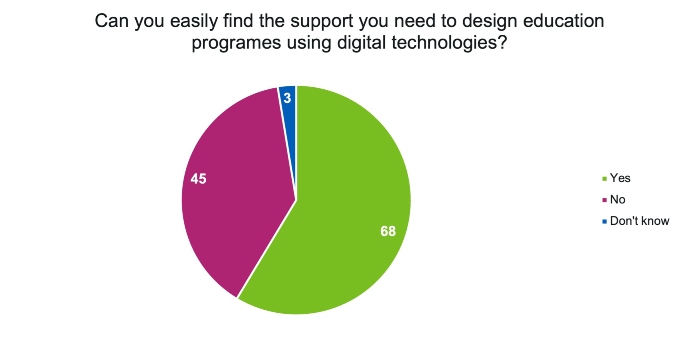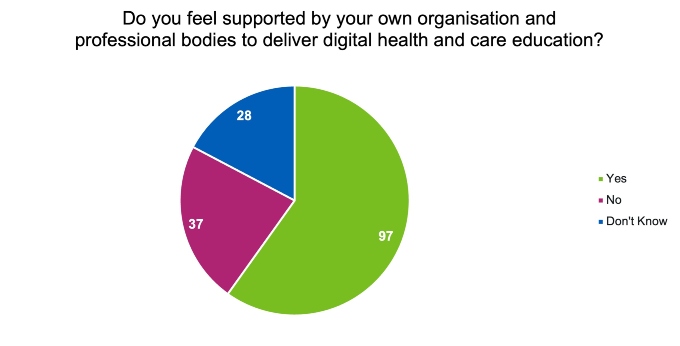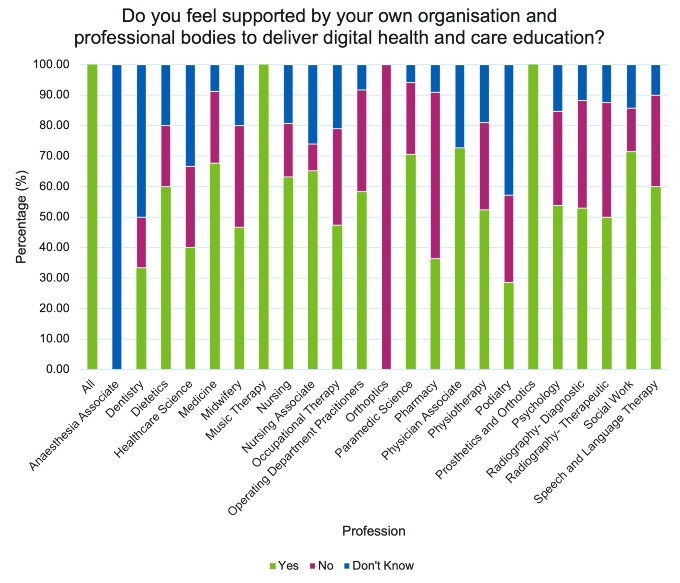What support is available?
Key findings: The digital literacy, digital technologies skills and techniques currently being taughtFind out what support is available.
During the focus groups, it was identified that there is a distinct lack of support for both students and staff in using digital technologies and developing digital literacy and digital skills.
Quote
This is exacerbated by the assumption that students are already digitally literate and competent, often because they are young.
Quote
Most staff at higher education institutions (HEIs) report in the survey that they were able to find the support they need to design education programmes using digital education (Figure 18). However, a large portion of staff also reported they could not which suggests further signposting of support is necessary to increase confidence.

Most practice education facilitators also feel supported by their organisation and professional body to deliver digital health and care education (Figure 19). However, this was not reflected in the discussions in the focus group suggesting that some groups feel more supported than others.

This is evident when this is broken down by profession. For example, practice education leads responsible for orthoptics, and pharmacy students predominantly indicate not feeling supported by their organisation and professional bodies (Figure 21). In contrast, those responsible for midwifery and prosthetics and orthotics students feel they are supported (Figure 20).

Participants in the survey identified a need for additional training as a theme in at least 20 responses.
Quote
Several participants in both the survey and the focus groups indicated that digital technologies education should be embedded in the curriculum to fully develop digital literacy. Additionally, the need for basic digital skills training was identified as a theme in at least 68 responses. Amongst practice education leads, eLearning and self-guided training were cited as the most common source of training and any other training provided was offered more informally.
Quote
Where support is available, it often comes from information technology (IT) teams. Additionally, library staff are commonly cited as sources of support, but many students and staff also reported feeling uncertain about where they could find additional support.
Page last reviewed: 10 May 2023
Next review due: 10 May 2024